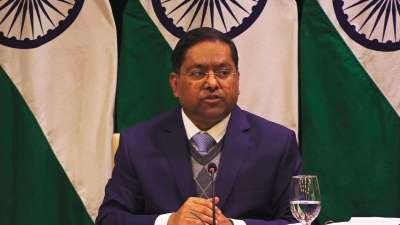India has strongly rebuffed recent comments from the United States regarding its Citizenship (Amendment) Act (CAA), denouncing them as interference in its internal affairs. The Ministry of External Affairs spokesperson, Randhir Jaiswal, emphasized that the CAA, enacted in December 2019, is an internal matter reflective of India’s pluralistic traditions and commitment to human rights.
The CAA, according to Jaiswal, aims to provide a safe haven to persecuted minorities, including Hindus, Sikhs, Buddhists, Jains, Parsis, and Christians, from neighboring countries such as Afghanistan, Pakistan, and Bangladesh. It grants citizenship to those who entered India on or before December 31, 2014, addressing the issue of statelessness and upholding human dignity.
The response comes after US State Department spokesperson Matthew Miller expressed concerns about religious freedom in India in light of the CAA. However, India categorically stated that the law is not discriminatory but rather facilitates citizenship for persecuted minorities while maintaining equal rights for all citizens, including Muslims.
Critics have previously questioned the exclusion of Muslims from the CAA’s provision s, but the Indian government has clarified that Muslims from these countries can still apply for citizenship under existing laws. The laws intent, reiterated by Home Minister Amit Shah, is to assist minorities facing religious persecution, not to infringe upon the rights of Indian Muslims.
s, but the Indian government has clarified that Muslims from these countries can still apply for citizenship under existing laws. The laws intent, reiterated by Home Minister Amit Shah, is to assist minorities facing religious persecution, not to infringe upon the rights of Indian Muslims.
Furthermore, Jaiswal emphasized that lectures from those with a limited understanding of India’s pluralistic traditions and history are unwelcome. He urged partners and well-wishers of India to recognize the positive intent behind the CAA, which seeks to alleviate the suffering of those in distress.
CAA’s appeal
Despite criticisms from various quarters, including the European Parliament, India remains steadfast in its commitment to implementing the CAA, viewing it as a necessary step towards safeguarding the rights of persecuted minorities and upholding the principles of inclusivity and human rights enshrined in its Constitution.
India’s response underscores its sovereignty and determination to address internal matters without external interference, while reaffirming its commitment to protecting the rights and dignity of all individuals within its borders.












